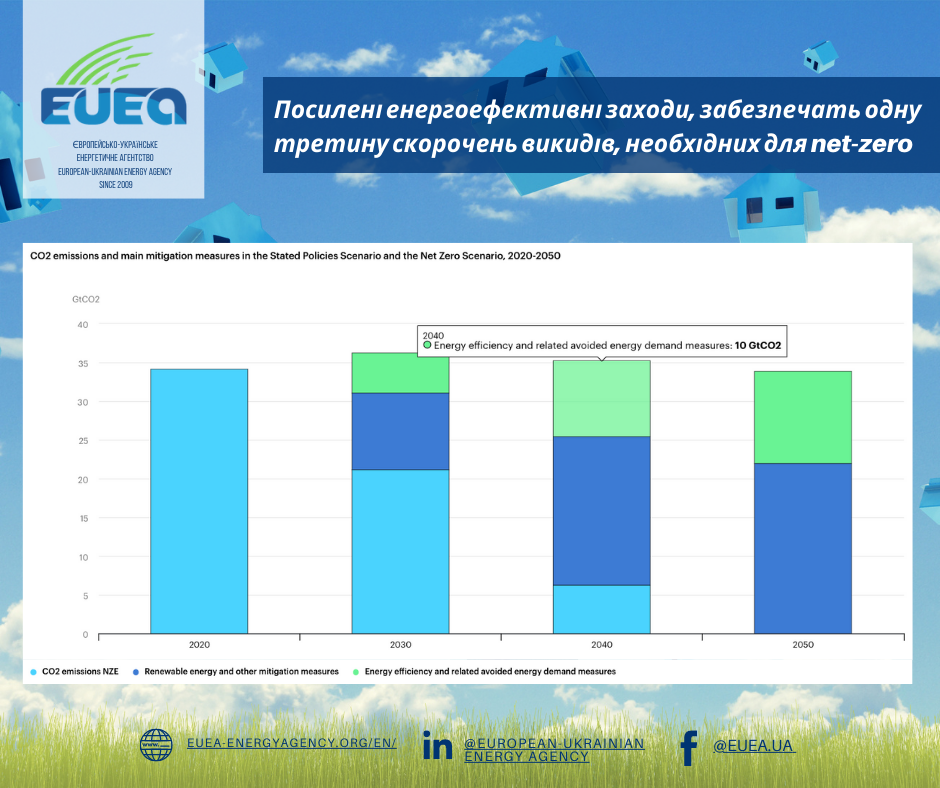The International Energy Agency (IEA) has voiced 10 strategic principles that will strengthen energy efficiency policies in the world and by 2030 to ensure one third of emission reductions compared to 2020.
She reported on the tools developed by the IEA press service European-Ukrainian Energy Agency (EUEA).
It is noted that in order to support more active energy efficiency actions, the IEA has developed a policy toolkit for governments, presented at the 7th Annual IEA Global Conference on Energy Efficiency in June 2022.
The set of tools consists of two parts: the first is 10 strategic principles based on the recommendations of the Global Commission on Urgent Action on Energy Efficiency; the second is a set of packages that highlight key approaches available to governments.
Here are 10 strategic principles for accelerating progress in energy efficiency:
1. Prioritize cross-sectoral energy efficiency measures for economic, social and environmental benefits.
The government-wide approach, prioritizing cross-sectoral action, maximizes energy efficiency in all sectors of society, enhancing social and economic development, energy security and sustainability, and accelerating the decarbonisation of the energy sector.
2. Unleash the potential of job creation efficiency.
Energy efficiency can quickly deliver jobs and remain a long-term, sustainable employment sector.
3. Create greater demand for energy efficient solutions.
Focus on increasing demand for energy efficient products and services to ensure a higher level of market activity.
4. Focus on finance in the context of scaling up.
Mobilization of finance is an important element of effective action, and policies aimed at it will be most effective if it is part of a broad, coherent approach to market growth, combining measures to increase demand with action to remove investment barriers, create market conditions, attracting and increasing private sector investment.

Photo: EUEA
5. Use digital innovations to increase the efficiency of the whole system.
Politicians can harness the potential of digital innovation to provide smart control, better energy management and broader energy system optimization.
6. The public sector should be an example of implementing initiatives.
Leading governments, in terms of investing in public sector efficiency and implementing innovation and higher standards, will create new experiences, markets, knowledge and confidence in energy efficiency solutions.
7. Involve all segments of the population.
The implementation of energy efficiency measures must take place at all levels of society, and cities, businesses and local communities play a particularly important role.
8. Use behavioral measures for effective policy.
People who use energy efficiency measures benefit from greater availability, lower costs and a more comfortable, healthier environment. Consumer behavior plays an important role, and knowledge of behavioral science will help to develop smarter and more effective policies.
9. Strengthen international cooperation.
International cooperation and the exchange of best practices allow countries to learn from each other and harmonize approaches and standards where necessary. This can accelerate the implementation of energy efficiency policies and market transformation.
10. Increase global ambitions for energy efficiency.
The benefits of energy efficiency policy are greatest when ambitions are high, capturing significant untapped potential for economic, energy and environmental benefits.
In general, accelerated action by the world economy by 2030 may be about a third more energy efficient than in 2020.
Before EcoPolitics wrote that the State Agency for Energy Efficiency and Energy Saving in pursuance of the Law of Ukraine "On Energy Efficiency" is working to develop a government decision on the establishment and operation National Energy Efficiency Monitoring System.





